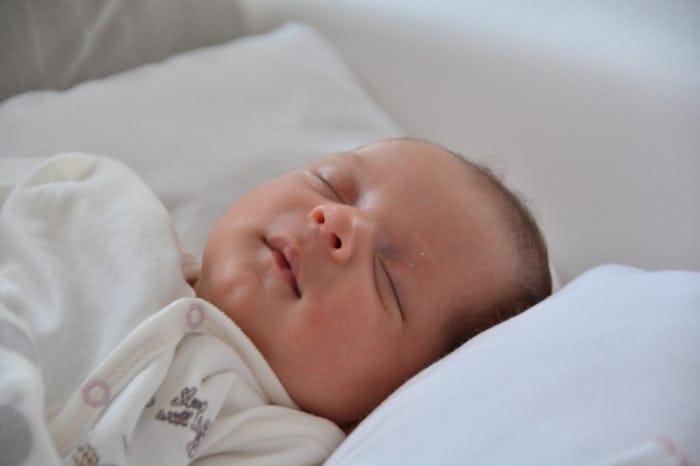In the parenting realm, few topics are more divisive than sleeping arrangements. Given the many ways to approach the task of getting a baby to sleep, it's no surprise the topic of rest sometimes inspires fierce reactions. With this in mind, it's normal to wonder how co-sleeping affects your kid's mental health later in life. In a perfect world, the answers would be straightforward and clear, so you would know the best approach for your family without a doubt. In reality, however, the results from research are a little more difficult to unravel.
First, it's helpful to review the ways co-sleeping may affect your kid's physical health. According to the American Academy of Pediatrics (AAP), the practice of co-sleeping, in which a child sleeps in the same room as a parent on a separate sleep surface, is correlated with a decrease in the risk of sleep-related deaths for infants. Conversely, the practice of a child sleeping in the same bed as a parent, also known as bed-sharing, has been correlated with a higher rate of SIDS in children younger than 6 months old, as further noted by the AAP. As far as physical health is concerned, co-sleeping is the way to go for infants under the age of 1.
But what about the mental health effects of co-sleeping? Much more research is still needed to fully understand this connection. At this time, the research appears to show both positive and negative results. For instance, a study in Ethos found that co-sleeping promotes self-esteem and confidence in children. Sounds great, right? But as a 2011 piece in Psychology Research and Behavioral Management found, parents who turn to extended co-sleeping as a way to soothe nighttime fears may only worsen the child's anxiety.
For what it's worth, bed-sharing seems to have a negative effect on mental wellbeing. According to a recent study in Journal of Affective Disorders, children who bed-shared appeared to have more mental health impairment by the age of 6 years. To put it mildly, the relationship between co-sleeping and mental health in children still requires a tremendous amount of study. In the meantime, doing what you think is right for your family is always a smart move.
